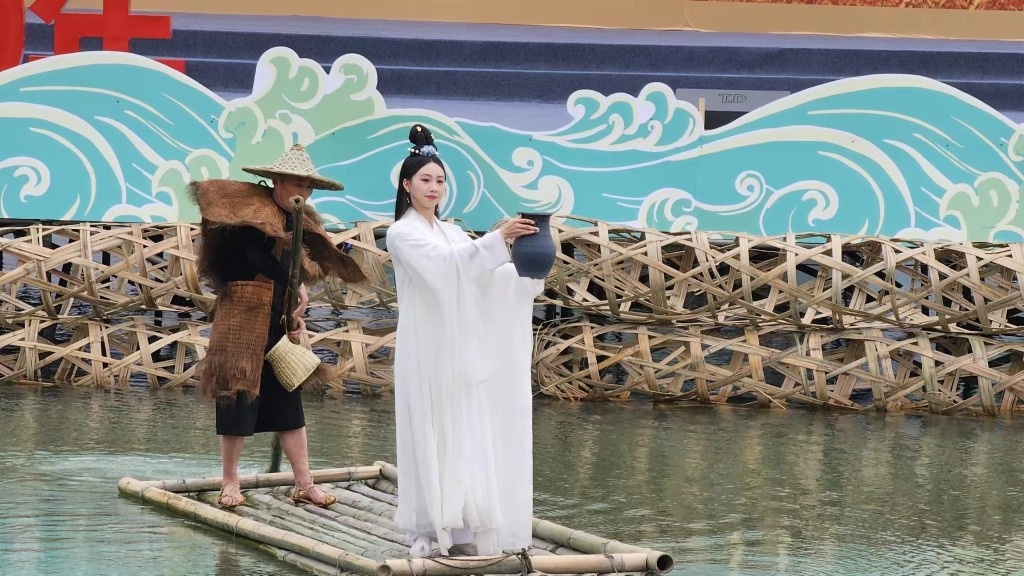Dujiangyan. Under the premise of safeguarding culture and the environment, the ancient ceremony of releasing water from the irrigation system of the city of Dujiangyan, in the southwestern Chinese province of Sichuan, was held, whose mechanism is recognized by the United Nations Organization for Education, Science and Culture (UNESCO) as a world heritage site.
“The Water Liberation Festival – celebrated every year for this ritual – shows us the excellent tradition of the people who revere their worthy predecessors and protect water conservation projects for generations,” said Shahbaz Khan, director of the office. of UNESCO in China.
In the 3rd century (BC), the engineer and politician Li Bing, serving the ruling state of Qin, which at that time was in conflict with that of Chu, devised this system of dam works, composed of dikes, partial ditches and waterways, to regulate the flow of the Min River, the largest and longest tributary of the Yangtze River, in order to push water towards the Chengdu Plain, so it currently covers seven towns and 40 districts.
Workers built it between 274 and 256 (BC) with oblong baskets woven from bamboo and filled with stones, supported by wooden tripods. The mechanism divides the river in two, allowing water to flow in a natural but controlled manner, without harming fish populations.
The irrigation system put an end to the relentless floods, droughts and famines that plagued the province in the past. He kept the cause open and helped transform the province of Sichuan into a power, since with the water the populations settled and writers, artists and, finally, philosophical currents, such as Taoism, began to emerge, in addition to beginning to pay tribute to it. .
Currently, during the ceremony, dozens of actors and dancers, dressed as warriors and princesses from that time of conflict, play Li and his assistants to sing, as if it were a musical, the story of the founding of Dujiangyan and to perform pay tribute to the population involved in the construction of this irrigation system with multiple fruit or floral offerings.
The system achieved UNESCO World Heritage status in 2000, while the Water Liberation Festival is in China’s first group of national intangible heritages.
Upon celebrating 2,280 years of its creation, Khan assured: This is my first visit to Dujiangyan. What impresses me most are their efforts and outstanding contributions in protecting water conservation projects and promoting excellent culture
.
Before local and diplomatic authorities, he assured: UNESCO will strengthen cooperation with the city of Dujiangyan to work together to protect this intangible cultural heritage
.
#China #celebrates #ancient #tradition #reveres #culture #environment
– 2024-04-11 17:29:19
